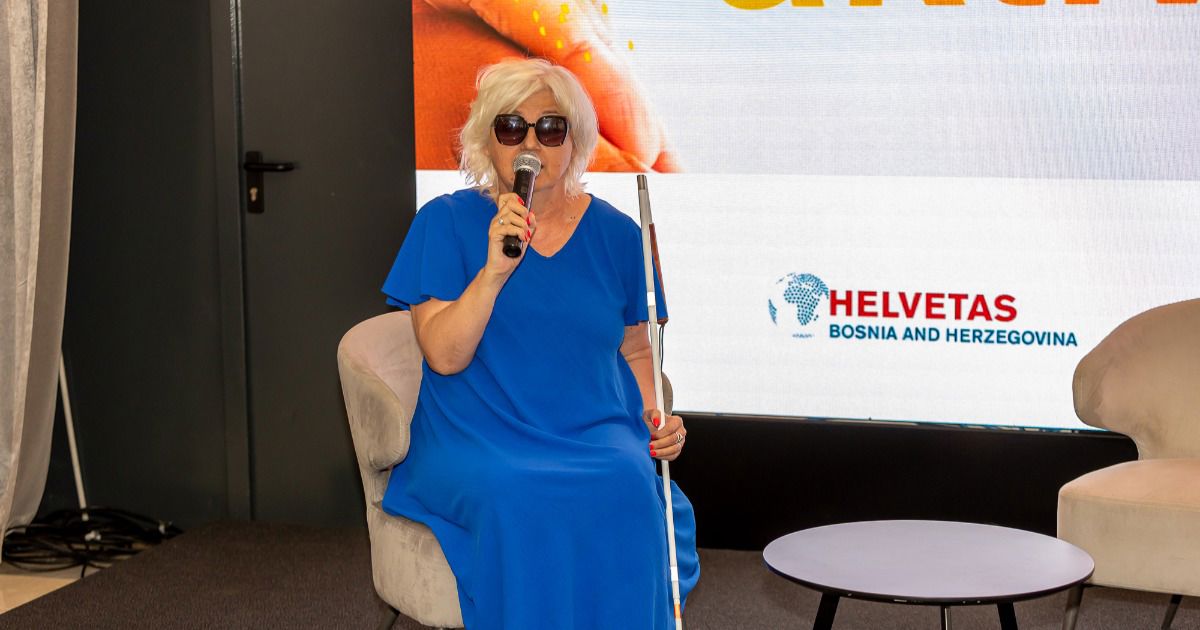
"It is important to work on breaking the fear among blind individuals and motivating them for independent movement. Independence has no price."
This is the motto of the Tuzla Association of Visually Impaired Citizens (UGOV), which advocates for better conditions for blind and visually impaired individuals in the Federation of Bosnia and Herzegovina (FBiH).
For nearly three decades, visually impaired individuals have faced serious challenges in acquiring essential aids. The white cane, Braille typewriters, talking watches, talking alarm clocks, and screen readers should not be considered luxuries, as they are fundamental tools for the independence of blind people. However, due to complex administrative procedures and inconsistent cantonal regulations, many blind individuals are left without these essential aids. According to the Association of the Blind of FBiH, there are over 2,000 blind individuals in this entity.
The key issue lies in the fact that aids for blind individuals fall under the jurisdiction of the healthcare sector at the cantonal level, meaning that the rights to these aids vary from canton to canton.
In addition to differences in access to aids across cantons, there is also the broader issue of their general availability in Bosnia and Herzegovina, as well as their high costs. Most of these aids are neither produced nor sold in the country, forcing blind individuals to purchase them from abroad, which further increases expenses. The lack of uniform regulations complicates the reimbursement process, and in many cases, health insurance funds do not recognize receipts from foreign purchases.
Faced with these long-standing problems, the Tuzla Association of Visually Impaired Citizens (UGOV), together with the Association of Blind Citizens of Gračanica, the Association of the Blind of the Una-Sana Canton, and the Association of the Blind of the Herzegovina-Neretva Canton, has launched a campaign advocating for equal rights to aids for blind individuals. The initiative aims to standardize the cantonal lists of orthopedic aids in three cantons—Tuzla Canton, Una-Sana Canton, and Herzegovina-Neretva Canton—ensuring that the most essential aids are included for this vulnerable group.
The unequal right to aids for blind individuals in the Federation of Bosnia and Herzegovina is a long-standing issue that negatively affects their quality of life. As in many other areas, their rights exist more on paper than in reality, leaving blind individuals without any tangible benefits. Blind individuals rely on these aids in education, in the workplace, and in everyday life, as they help reduce their dependence on family members and friends - the Tuzla Association of Visually Impaired Citizens emphasized.
"In addition to advocating for equal rights to aids, we want to highlight the need to simplify the procedures for obtaining these rights and to address the technical aspect of where to purchase the aids" the association stated in its public announcement.
Ensuring equal rights for blind and visually impaired individuals would be a crucial step toward creating a more inclusive society in Bosnia and Herzegovina.




